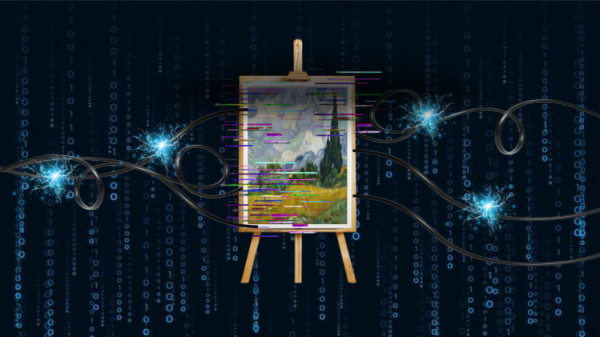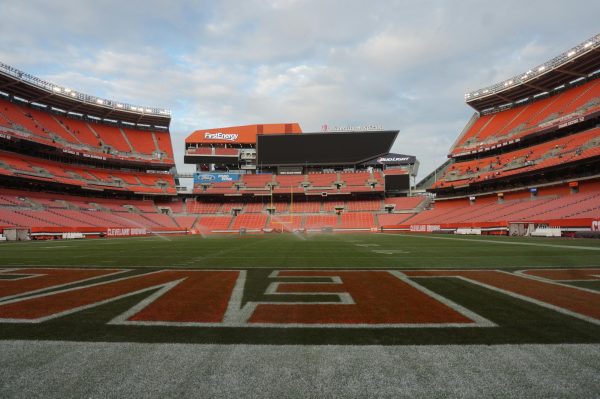Monopoly: Even Less Fun in Real Life.
In the 20th century, the second industrial revolution created an age of monopolies and robber barons. In the 21st century, the digital revolution is creating oligopolies and the one percent. There are differing reactions across the political aisle to the rhyming situation of today; however, the current conversation has revolved around the power of social media to control social interactions. Unfortunately, this conversation has overshadowed the more serious problems arising from this changing world.
During the early 20th century, monopolies were forming in markets for oil; belonging to Standard oil, steel; belonging to Andrew Carnegie and J.P. Morgan, and the meatpacking industry which belonged to only four companies. While this does not include an entirety of the monopolies present nor the entirety of control that these men had, it is a useful examination point to understand the markets today.
J. P. Morgan was born to a bank owner, and he took control of the family business and expanded. He became so rich that he bailed out the government in financial crises. The banker used his wealth to dominate his business fields where he bought commanding control in rising fields such as Vanderbilt railroads, Carnegie Steel, General Electric, and others. However, his wealth came at the expense of the consumers and other businesses. Railroads built by the steel of the same industries often starved farmers and regular travelers with exorbitant prices to travel and sell goods because they were often the only option. And to push out the competition, especially small businesses, monopolies like these dropped their prices, hemorrhaging money, to push out the competition to hike up prices afterward when they are the only choice left.
Andrew Carnegie, a Scottish-born immigrant, took hard and often dangerous jobs to work up to a place of confidence with his employers. From there his connections allowed him to slowly accrue capital until he commanded a controlling domain in industries, especially steel. He became one of the richest Americans of all-time. While he promoted an ideal of charity through his Gospel of Wealth and his own sizable donations, it has given him an angelic look in comparison despite his controversies. A breaking of a dam, which Carnegie and other rich colleagues owned and knew had structural integrity problems, caused the death of 2,209 people. Carnegie promptly covered it up by giving to charity for the survivors. And during the Homestead strike, where workers in dangerous and unrewarding conditions were striking for a wage increase, Carnegie left his brutish second-in-command to deal with it which ended in violence.
The standout description of working conditions of the time comes from Upton Sinclair’s The Jungle, a first-hand narrative of the horrors of the meat-packing industry. Frequent death, maiming, or dismemberment resulted in nothing for the worker except being fired. Wages were barely livable, and if the unreasonably high expectations for production were not met, workers were likely to be replaced. Workweeks bordered on 80 hours of work, and a worker seeking better working conditions through unions were likely to be blacklisted from any job in the city by the companies. The disgusting working conditions also created low-quality food which had bugs and rats often mixed with the meat. This gruesome depiction made the Republican president, Theodore Roosevelt, take action by creating statutes such as the Clean Food and Drugs act. And while progress has clearly been made, it has been at the sacrifices of socialists, unions, and labor movements who made incredible improvements in the living conditions of America despite virulent and violent anti-socialism during the red scares. All of that was from an industry that was an oligopoly, not a monopoly, but an industry controlled by four companies.
Standard Oil is the big monopoly name broken up by Theodore Roosevelt with Anti-trust acts, but the abuses by the monopoly were never really punished. It was broken into multiple businesses, but those resulting companies are the ones in control of the oil industry today. The people in charge, namely Rockefeller, were given shares in the new companies which they continued to earn a great deal of money in the newly created oligopoly.
Now, I swear that history lesson was important to today.
Republicans, and a fair amount of Democrats, tend to focus on the power of social media companies to control public discourse by their terms of service. Democrats, and a fair number of Republicans, tend to focus on the power of social media companies to spread misinformation without punishment. The popular solution by both sides, right now, seems to be revoking Section 230, which would change the entirety of the internet. Section 230 allows websites to moderate what is on their site through terms of service without being legally responsible for everything on their platform. This would effectively remove social media and content creation from the average person since platforms can not scan everything uploaded to their website. Otherwise, bad actors would gather and harass people off of the internet (there are unmoderated places on the internet that always seem to be a breeding ground for literal neo-nazis and harassers).
Meanwhile, Amazon has working conditions that often cycle through workers because of back-breaking productivity quotas. While there are better conditions than in the twentieth century, workers in Amazon warehouses have to walk the length of multiple football fields under incredibly small time frames that wear down even fit twenty-year-olds. The rate of firing leads to bathroom breaks being skipped in order to keep their job. A woman has died in a warehouse where the rest of the workers were told to continue to work (Amazon denies it, but there are social media posts from the time that seem to contradict that). And that is not ground-breaking journalism from me, a busy high-schooler; I learned about this from Last Week Tonight and Patriot Act, two popular news shows. Yet, state governments have continued to offer extreme tax breaks to bring jobs to their specific state. Yet, people still shop at Amazon to make the CEO one of the richest people alive because Amazon has bullied companies like Diapers.com and sellers ON THEIR WEBSITE to create products that push out the competition. On top of that, any union organization by their workers is often punished.
Social Media like Facebook, Instagram, Snapchat, Twitter, Youtube, Twitch, etc. form an oligopoly of online action. There are other social media platforms; however, none achieve even close to the popularity of these platforms. They do have great control over how we behave. Through serious privacy invasions alongside companies such as Google, they can create a level of radicalization that we are feeling today politically by pushing what will get more attention in front of people. And while it is cliche to mention today, it can push baby clothes and toys to a woman before she knows herself that she is pregnant (although, it is not always right). And while there are rules to keep the information collected about your secret, there is a unifying identifier. And location data from phones or looking up restaurants or stores can tie you to a unifying identifier where the company can effectively identify you. The social platforms have helped bring about new conspiracies to the modern-day and hatred against racial groups by being nearly ubiquitous in countries (Facebook is more used than Google in some countries). And while there does not seem to be a bias against reasonable ideas (there is a bias against racism and harassment), the social media platforms do have the ability to be incredibly powerful by muting people or decreasing their outreach by limiting the use of popular social platforms.
The solutions to these problems are wide-ranging and difficult. Section 230 could be repealed, and the problems created by the companies would remain. There are antitrust actions being taken about some of these tech-giants, but there have been actions in the past which only resulted in fines. If these companies are broken up, it probably will not be enough because a group of a few is not enough to truly make a competitive market. Regulation is probably needed, but we currently have an anti-regulation mentality. What I do know is that situations like this have been improved in one way in the past, progress was made with Upton Sinclair’s book, progress was made with the people who pushed those problems to the conversation of the federal government. Progress was made by the direct action of socialists, unions, and labor movements. I think the problems of the digital revolution will need direct action around specific improvements that are not the unpunished fines or dissolution or regulations that step around the problem instead of decreasing the power of companies to abuse their position.

Justin Page, while being a new addition to the staff of the Crimsonian, is a Senior at DHS. He participates in groups such as the Choir, the Orchestra,...






